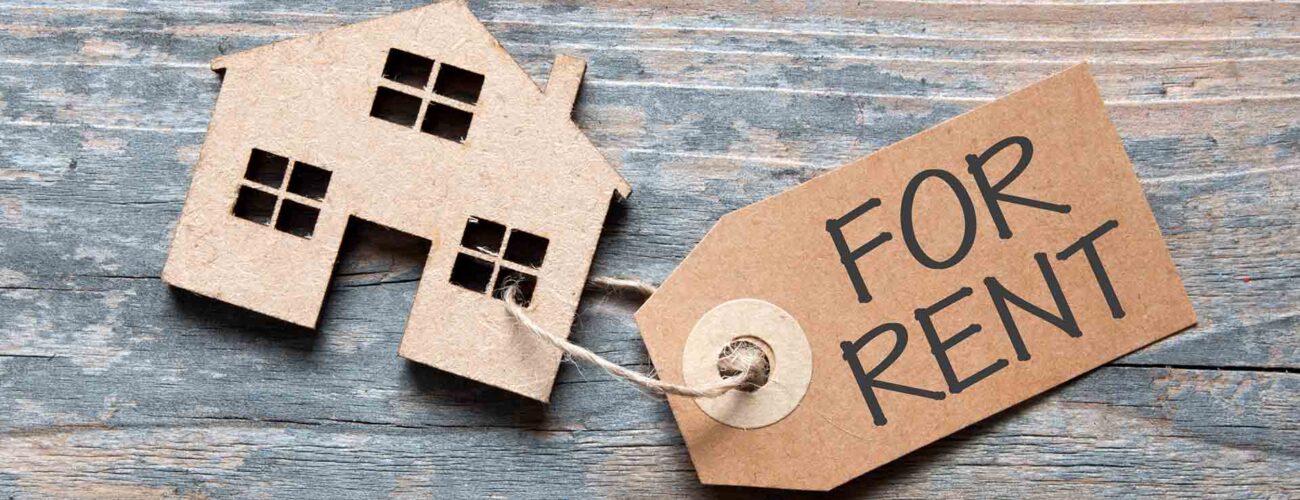

How to Rent Your Home When Moving Cross Country
Posted in How-to,Looking for a Home on November 7, 2022
While relocating across the country is an exciting time, it can also be a bit overwhelming. One of the questions you may be asking yourself is what to do with your current home. Should you sell it? Keep it and rent it out? Let’s check how to rent your home and have the best possible experience.
When you want to become a landlord, there are some things you need to learn if you want to be a successful one. Firstly, it’s important to assess the entire situation and check all the pros and cons of short and long-term rentals and tenancy. Then calculate all the expenses you’ll have and how much the rent will be. Consider also hiring additional help. Don’t forget to inform yourself about security deposits. Lastly, inspect and tidy up the place.
How to Rent Your Home – First Assess the Situation
You might be considering getting a roommate or advertising your extra bedroom on Airbnb if you have one. No matter what the reasons are for your move, whether you want to live in a smaller house or you got a great job opportunity. Keeping your home and renting it could be a great solution. That way, you won’t have to prepare your place for the sale and have even more stress than booking reliable cross-country moving services with a more than-needed packing service.
In case you’re not relocating but want to earn some extra money by having a roommate be aware you’ll probably have to use the same kitchen or bathroom and lose some of your privacy. The short-term tenant or roommate may have varied expectations for cleanliness and acceptable noise levels, or they may arrive and depart at irregular times. Be honest about how tolerant you are of living with strangers before taking this route.
Perhaps you just want to periodically make some additional cash by renting out the spare room in your residence or holiday home. Or maybe you have a different property and would prefer a long-term renting arrangement. Each has advantages and disadvantages.
Pros of Short-Term Rentals
Check the pros of having short-term tenants:
- The property will be yours to utilize whenever you like.
- The property won’t endure as much damage with sporadic occupants.
- You can adjust your nightly rental fee to take into account current market demand and seasonality.
Cons of Short-Term Rentals
Check the cons of having short-term tenants:
- The property will require cleaning more frequently than if a long-term renter were living there.
- In the off-season, it could be difficult to locate renters if you reside in a busy place.
- There may be stiff competition. Along with the adjacent hotels and resorts, you must contend with other local rentals. What distinguishes your property?
Pros of Long-Term Tenancy
Check the pros of having long-term tenants:
- A reliable second source of income will be available to you (as long as the property is still rented).
- The renters are now responsible for paying the utilities. So you won’t have to pay for utilities!
- You can work with a qualified building manager who will take care of things like tenant screening, observing rental regulations, and managing home maintenance and repairs.
Cons of Long-Term Tenancy
Check the cons of having long-term tenants:
- The residence and its appliances will see additional wear and tear if the property is continuously occupied.
- You can be forced to sign a long-term lease with a tenant that is less than desirable.
- You won’t be able to use the house as a vacation property.
Now that you’re aware of some of the most important pros and cons of having both short and long-term renting and tenancy, choose wisely what suits your needs the best.
Do the Math Before Anything Else
The benefit of being a landlord in this market is the ability to take that money and, if you’re wise with it, pay down your mortgage more quickly so you can be better debt-free and have much more equity in your property. However, it’s crucial to continuously keep a close eye on your spending if you want to be a reliable and successful landlord.
So, when you realize all the benefits of relocating with long-distance movers, check out what things you actually need to rent an apartment. That way, you’ll understand better the possible tenants or roommates. After all, many are relocating to another city and find that transition quite stressful and even feel anxious about relocating.
So, here are some questions to consider asking:
- Is it rented out?
- How likely is my vacancy rate?
- What price per square foot am I able to receive in the current market?
- Will rents keep rising?
Consider both a single property and the general rental market while making judgments. Be sure to budget for repairs and maintenance. Unfortunately, tenants have a lot of potential for harm. The majority of landlords budget 10% of the property’s value each year for maintenance costs, but unforeseen big repairs can be costly.
Landlords should also account for yearly maintenance costs, taxes, and insurance (which are typically higher for investment homes), as well as any vacancies, in their overall budget. All of these costs can add up quickly, especially if the house is left unoccupied for a time and you are left responsible for paying the rent and utilities. Know that if you’re doing this for the first time, it can be a bit confusing. So, be organized with a list of to-do’s, and don’t worry about anything.
You Should Also Determine How Much You Will Earn
You need to make enough money from the rental to pay your costs, but you can’t price it so high that no one will ever rent it. Before purchasing a rental home or selling a room, conducting some market analysis on rental prices is crucial. Your profitability will be determined by what you can charge for rent. In other words, you have to make a long-distance moving expenses deduction.
Landlords should look at their rental homes as a tool to assist them in achieving their financial objectives rather than as a reflection of their personal preferences. Keep an eye on the neighborhood market with a local realtor to assist in determining rental pricing. Additionally, you can conduct some independent research by searching online for postings for nearby apartments on websites like Facebook Marketplace, Craigslist, and others.

Have a One-On-One Talk With Your Insurance Agent
Before you decide to move to a new city and rent your house, be sure to involve your insurance agent. You’ll need more liability insurance even if you’re merely renting a room. Ask your insurance broker what you should do to protect yourself by letting them know that tenants will be staying in your guest room. They’ll be aware of any riders or gaps in coverage that need to be added to your home insurance.
Be aware that the price of landlord insurance is between 15% and 20% more on average than homeowner’s insurance. It’s not necessary to buy landlord insurance, often known as rental property insurance, but doing so has several advantages for both short- and long-term rentals. It shields landlords from having to pay for expensive repairs, whether the tenant caused the damage or a natural calamity, especially if tenants are relocating with pets. (Note that separate flood insurance must be acquired.)
The majority of landlord insurance policies cover the following:
- Property damage,
- Loss of rental income,
- Liability,
- Vandalism,
- Building code coverage.
It’s better to be safe than sorry when it comes to things like this. You surely don’t want to be in an unpleasant situation without much-needed insurance.
Consider Hiring Some Help
You should also think about whether you should employ outside help to assist you in managing the property. After all, you won’t be selling a house without an agent when moving across the country, so it’s one of the relocation essentials to think about before and after the move.
These extra services offer many advantages and can provide much-needed peace of mind, even though they can hurt your bottom line. Here are three experts that you might want to hire.
- Building manager – You can save a lot of hassles by renting your residence through a management company. They have a variety of responsibilities, such as selecting tenants, managing routine maintenance and repairs, and collecting rent.
- Attorney – Being a landlord is similar to being a business owner. Thus, it’s critical to ensure your protection and that of your company. A standby attorney can help you write a lease, navigate challenging situations like landlord-tenant conflicts or eviction, and navigate local property restrictions.
- Accountant – When tax season arrives, an accountant can help you file taxes for a property you’re renting and determine whether you’re eligible for any tax breaks. Along with a host of other services, they can provide early guidance on any modifications to the US tax code that might lead to monetary advantages or losses.
Having as much help as you can get in this case is more than just essential.

Talk Security Deposits
A security deposit is required by law for all rented homes as collateral to safeguard the property. When a lease is signed, the tenant gives the landlord a security deposit, which is used to pay for any damages that might happen while residing there. The security deposit is returned to the tenant if the property is in exactly the same condition when they move out.
Deposit is a way for landlords to safeguard their investment and prevent themselves from being saddled with an enormous repair bill in the event that a renter mistreats their property. There may be laws dictating how much a security deposit must be and what improvements the money can be used for. Of course, depending on where the property is located, in the countryside or metropolis.

Also, Ensure the Property Is Inspected
It’s typical for tenants and landlords to do a move-in inspection jointly before signing a lease. Any issues can be raised at this time, and both the tenant and landlord can agree on the state of the rental upon move-in. Following completion of the inspection checklist and inventory list, it is attached to the signed lease contract for examination during move-out to see if anything has to be subtracted from the security deposit.
Tighty up Your Property
Move-out cleaning, indeed, is a step you shouldn’t omit. This is a great way to show you’re a serious landlord. Maintaining clean gutters, mowing the lawn, trimming tree limbs, and pulling weeds are a few ways to improve the curb appeal of your rental. Don’t forget to clean the outside of the property as well. Pack all the fragile items and other valuables you want to bring with you (if leaving the place), but also be sure to leave some stuff so that a future tenant can feel cozy and at home.
If you need tips on cleaning your place quickly and efficiently, watch the video below.
Find Applicants, and You Are Ready to Rent
Renting out your home when you move cross country is a great way to earn extra income and keep your financial options open down the road. Just remember that as the landlord, you’re responsible for finding a tenant, drawing up the lease agreement, collecting rent, maintaining the property, and dealing with any problems that may arise – so it’s not a decision to be made lightly! But if you’re up for the challenge, renting your home could be a very rewarding experience.





